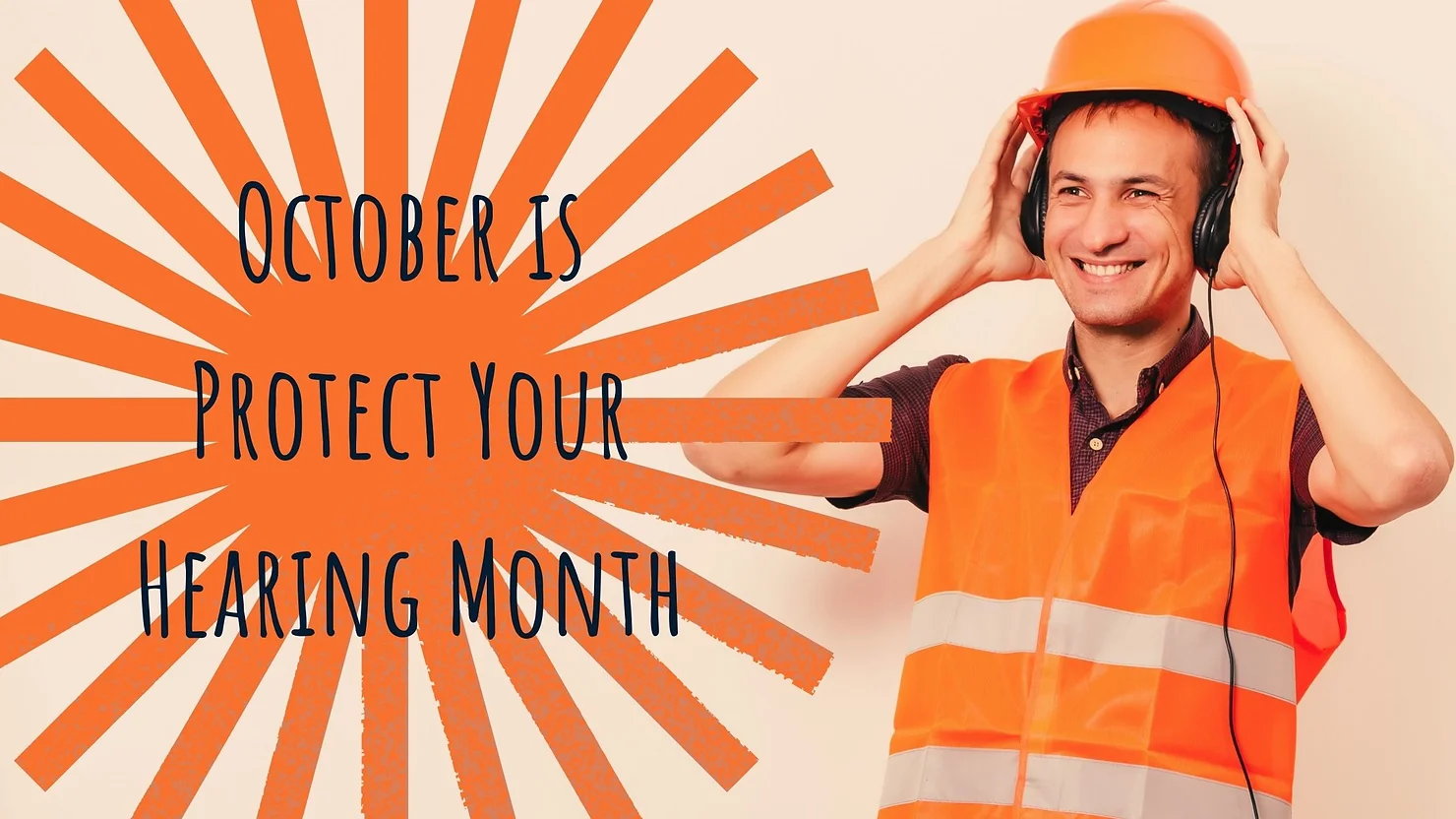
October is Protect Your Hearing Month! Hearing loss is the third most common chronic health condition that people live with today. A pervasive health concern, hearing loss can be caused by several factors that reduce one’s capacity to hear and process sound. One major cause of impaired hearing is loud noise, known as noise-induced hearing loss. We are regularly exposed to levels of noise that are potentially hazardous for hearing health. In fact, the World Health Organization estimates that over 1 billion people worldwide are at increased risk of developing noise induced hearing loss. By learning about this risk and practicing ways to mitigate the impact of loud noise, you can protect your hearing health!
How Can Loud Noise Cause Hearing Loss?
The auditory system is the sensory system for hearing. It is how we absorb and understand the sound in our environment. This system involves the ears and brain which work together to detect and process sound, specifically:
-
Outer ear: the outer cartilage, the most visible part of the ears, absorbs soundwaves from the environment. These soundwaves travel through the ear canal and land on the eardrum, causing it to vibrate.
-
Middle ear: eardrum vibrations trigger three tiny bones that are in the middle ear (known as the ossicles) which amplify and help push these soundwaves further into the inner ear.
-
Inner ear: housing the cochlea, the inner ear is made up of fluid and sensory cells that translate incoming sound waves into electrical pulses. The auditory nerve then picks up these pulses, carrying them to the brain which registers and assigns meaning to the sound; enabling us to understand what we hear.
Noise-induced hearing loss occurs when the sensory cells (also referred to as hair cells) are damaged. One time or consistent exposure to loud noise can cause these hair cells to lose sensory, eventually dying which prevents the critical function they perform. Because these cells do not regenerate – humans are born with all the hair cells we will ever have – the damage they incur is permanent, producing hearing loss.
How Loud is Too Loud?
We navigate varying levels of sound throughout the day but how loud is too loud? Sound is measured in units known as decibels (dB) and noise above 85dB is considered potentially hazardous for hearing health. We can be exposed to this level, and higher, of sound regularly:
-
60-70dB: normal conversation
-
80-110dB: power tools (like a hand drill), vacuum, motorcycles
-
94-110dB: higher volume settings on personal audio devices, sporting events, music venues
-
110-129dB: sirens
Experts suggest that 85dB of noise exposure for 8 hours in one day is not particularly dangerous for hearing health. But exposure to sound above this should be monitored and exposure time should be reduced by half (after 85dB). Safe listening guidelines include:
-
85dB: 8 hours
-
88dB: 4 hours
-
91dB: 2 hours
Exceeding these durations and absorbing higher volumes of noise can permanently damage hearing.
Tips to Protect Your Hearing
The impact of loud noise tends to accumulate over time, impacting hearing health gradually. So hearing loss can remain undetected for quite some time. It is important to practice safety measures to reduce the risk of developing hearing loss and minimizing the impact of loud noise. Tips you can start practicing today include:
-
Wearing protective gear: hearing protection can include wearing headphones, earbuds, earmuffs etc. This provides a protective barrier that reduces the amount of sound you absorb and the impact of that sound. Wearing protective gear is especially useful when navigating loud environments like music venues, construction sites, commuting on trains etc.
-
Reduce exposure: avoiding absorbing loud noise is another useful tip. You can do this by avoiding peak hours at restaurants and/or bars, taking different routes to avoid loud traffic, limiting your interaction with loud sources of noise during the day etc.
-
Lower volume: maintaining lower volume settings on your electronic devices is another way to reduce your risk of impairing your hearing. A great way to do this is by using noise cancelling headphones which reduce background noise. This prevents you from turning up the volume on your device as you move through louder environments.
Another important tip is to have your hearing tested annually – and that’s where we come in! Contact us today to schedule an appointment for a hearing test and to learn more about how to optimize your hearing health.
